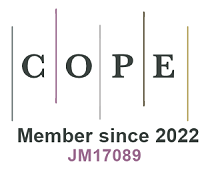Biologics reshape the future of lupus care
The treatment of systemic lupus erythematosus (SLE) has long been marked by frustration, with decades of reliance on steroids and nonspecific immunosuppressants that carried often heavy toxicity and limited efficacy. In recent years, however, the story of lupus care has begun to change. Biologics, which represent precision medicines designed to target the pathways driving disease, are rewriting what is possible for patients living with this complex autoimmune condition.
Richard Furie is a recognized leader on the use of monoclonal antibodies for treating lupus erythematosus, both under its systemic and cutaneous forms[1,2]. In his present comprehensive review, “Management strategies using biologics in systemic lupus erythematosus”[3], Richard Furie charts the remarkable journey from discovery to approval of the first successful biologic therapies in lupus. He highlights belimumab, the pioneer anti-B lymphocyte stimulator (BLyS) antibody that opened the door to targeted therapy in 2011, and anifrolumab, an interferon receptor blocker that followed a decade later. Together, these drugs offer patients tangible benefits: reduced disease activity, fewer flares, lower steroid dependence, and greater chances of achieving low disease activity or remission.
What emerges from this article is not just a chronology of clinical trials, but a roadmap for the future. Dr. Furie underscores how biologics are moving from “last-resort” options to earlier-line therapies, reflecting a growing consensus that timely intervention can change the trajectory of disease. He also tackles the real-world challenges rheumatologists face - knowing when to start treatment, which patients stand to benefit most, and how to balance efficacy with cost and access.
The forward-looking vision enlights a therapeutic landscape where additional biologics, such as obinutuzumab, expand options for patients with lupus nephritis and beyond. Progress is real, but the work is far from done to optimize which biologics, for which patient, at which point in their disease journey.
This article reminds us that after decades of stalled progress, lupus is entering a new era - one in which innovation is matched with evidence, and patients can look toward the future with renewed optimism.
DECLARATIONS
Authors’ contributions
The author contributed solely to the article.
Availability of data and materials
Not applicable.
Financial support and sponsorship
None.
Conflicts of interest
Daniel Scherman is the Editor-in-Chief of the Rare Disease and Orphan Drugs Journal. He was not involved in any steps of the editorial process, notably including reviewers' selection, manuscript handling and decision making.
Ethical approval and consent to participate
Not applicable.
Consent for publication
Not applicable.
Copyright
© The Author(s) 2025.
REFERENCES
1. Furie RA, van Vollenhoven RF, Kalunian K, et al; LILAC Trial Investigators. Trial of anti-BDCA2 antibody Litifilimab for systemic lupus erythematosus. N Engl J Med. 2022;387:894-904.
2. Werth VP, Furie RA, Romero-Diaz J, et al; LILAC Trial Investigators. Trial of anti-BDCA2 antibody Litifilimab for cutaneous lupus erythematosus. N Engl J Med. 2022;387:321-31.
Cite This Article
How to Cite
Download Citation
Export Citation File:
Type of Import
Tips on Downloading Citation
Citation Manager File Format
Type of Import
Direct Import: When the Direct Import option is selected (the default state), a dialogue box will give you the option to Save or Open the downloaded citation data. Choosing Open will either launch your citation manager or give you a choice of applications with which to use the metadata. The Save option saves the file locally for later use.
Indirect Import: When the Indirect Import option is selected, the metadata is displayed and may be copied and pasted as needed.
About This Article
Copyright
Data & Comments
Data
















Comments
Comments must be written in English. Spam, offensive content, impersonation, and private information will not be permitted. If any comment is reported and identified as inappropriate content by OAE staff, the comment will be removed without notice. If you have any queries or need any help, please contact us at [email protected].